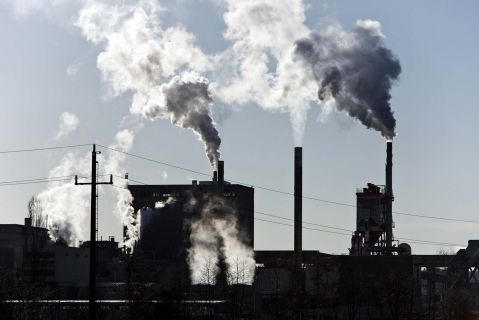Strategies for a Resilient World Against Global Warming
2024-12-18 12:39:39
In the face of the escalating challenges posed by global warming, the imperative for decisive and collective action has never been more pressing. As our planet grapples with the far-reaching consequences of climate change, the need for comprehensive defense strategies has taken center stage. From technological innovations to international cooperation and grassroots initiatives, the battle against global warming demands a multifaceted approach that transcends borders and ideologies.

Understanding the Threat
Global warming, driven predominantly by human activities such as burning fossil fuels and deforestation, has led to rising temperatures, melting ice caps, extreme weather events, and disruptions to ecosystems. The consequences are far-reaching, impacting everything from food and water security to biodiversity and the livelihoods of vulnerable communities.
The urgency of the situation requires a paradigm shift in how we view and address global warming. Instead of perceiving it as a distant threat, the imperative is to recognize it as a clear and present danger demanding immediate and sustained attention.
Technological Innovations: A Shield Against Climate Change
One of the most promising fronts in the defense against global warming lies in technological innovations. Advances in renewable energy, carbon capture and storage, and sustainable agriculture offer a pathway towards reducing greenhouse gas emissions. Solar and wind energy, in particular, have emerged as powerful tools in the arsenal against climate change.
Governments, businesses, and research institutions worldwide are investing in and advancing these technologies. The development and implementation of clean energy solutions not only mitigate the impacts of global warming but also contribute to the creation of a sustainable and resilient future.
Adapting Infrastructure: Building Climate-Resilient Societies
The defense against global warming requires more than just reducing emissions; it demands adapting our infrastructure to withstand the changing climate. Rising sea levels, extreme weather events, and shifting precipitation patterns necessitate the creation of climate-resilient cities and communities.
Investing in resilient infrastructure involves incorporating sustainable design principles, improving water management systems, and developing early warning systems for natural disasters. By integrating climate considerations into urban planning and infrastructure development, societies can build a robust defense against the impacts of global warming.
International Cooperation: A Unified Front
Global warming knows no borders, and its effects are felt universally. To mount an effective defense, nations must transcend geopolitical differences and collaborate on a global scale. International agreements, such as the Paris Agreement, represent a critical framework for collective action.
By sharing knowledge, technology, and resources, nations can amplify their individual efforts and address the root causes of global warming. Collaborative initiatives focused on reforestation, emissions reduction, and sustainable development can create a united front against the common enemy of climate change.
Empowering Communities: Grassroots Defense
While international collaboration is essential, the defense against global warming must also involve empowering local communities. Grassroots initiatives play a crucial role in building resilience and fostering sustainable practices at the community level.
Educating communities about climate change, promoting sustainable agriculture, and supporting local renewable energy projects empower individuals to contribute to the broader defense effort. By fostering a sense of environmental stewardship, grassroots movements create a bottom-up approach that complements global initiatives.
Shifting Consumption Patterns: Consumer Choices as a Defense Mechanism
Individuals wield significant power in the fight against global warming through their consumption choices. Adopting sustainable practices in daily life, such as reducing meat consumption, minimizing waste, and choosing eco-friendly products, can collectively contribute to a lower carbon footprint.
Consumer demand has the potential to drive industries towards more sustainable practices, prompting businesses to adopt environmentally friendly measures. By making informed choices and supporting businesses with strong environmental policies, individuals become active participants in the defense against global warming.
Education and Advocacy: Weapons of Mass Awareness
In the defense against global warming, education emerges as a potent weapon. Increasing public awareness about the causes and consequences of climate change fosters a sense of urgency and empowers individuals to advocate for meaningful policy changes.
Schools, universities, and community organizations play a pivotal role in disseminating knowledge about climate change. Engaging in informed discussions, supporting climate-friendly policies, and holding leaders accountable contribute to a more informed and active citizenry.
The Path Forward: A Unified Effort
The defense against global warming requires a harmonized and sustained effort across all sectors of society. From governments and businesses to individuals and communities, everyone has a role to play in safeguarding our planet. Embracing a future where sustainable practices and responsible environmental stewardship are paramount will not only protect us from the impacts of climate change but will also lay the foundation for a healthier, more resilient world.
As we confront the challenges of global warming, the decisions we make today will shape the course of our collective future. By embracing innovation, fostering international cooperation, empowering communities, and making conscientious choices in our daily lives, we can build a robust defense against the threat of climate change and pave the way for a sustainable and thriving world for generations to come.












